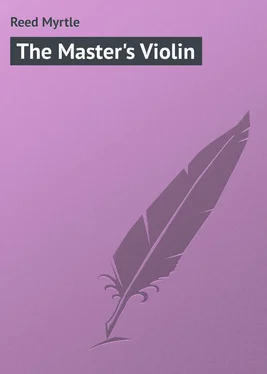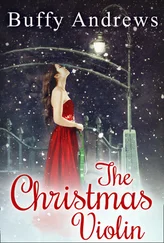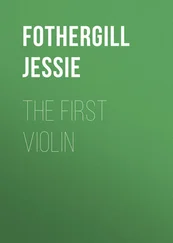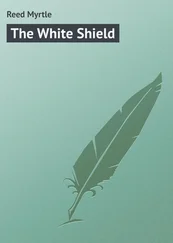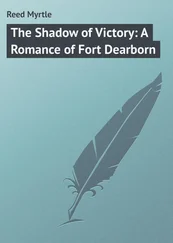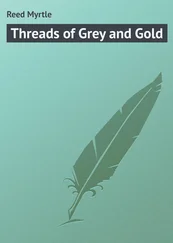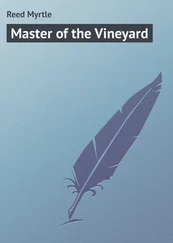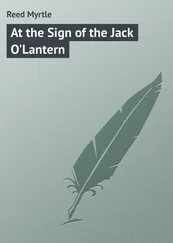Myrtle Reed - The Master's Violin
Здесь есть возможность читать онлайн «Myrtle Reed - The Master's Violin» — ознакомительный отрывок электронной книги совершенно бесплатно, а после прочтения отрывка купить полную версию. В некоторых случаях можно слушать аудио, скачать через торрент в формате fb2 и присутствует краткое содержание. Издательство: Иностранный паблик, Жанр: foreign_prose, Зарубежные любовные романы, на английском языке. Описание произведения, (предисловие) а так же отзывы посетителей доступны на портале библиотеки ЛибКат.
- Название:The Master's Violin
- Автор:
- Издательство:Иностранный паблик
- Жанр:
- Год:неизвестен
- ISBN:нет данных
- Рейтинг книги:4 / 5. Голосов: 1
-
Избранное:Добавить в избранное
- Отзывы:
-
Ваша оценка:
- 80
- 1
- 2
- 3
- 4
- 5
The Master's Violin: краткое содержание, описание и аннотация
Предлагаем к чтению аннотацию, описание, краткое содержание или предисловие (зависит от того, что написал сам автор книги «The Master's Violin»). Если вы не нашли необходимую информацию о книге — напишите в комментариях, мы постараемся отыскать её.
The Master's Violin — читать онлайн ознакомительный отрывок
Ниже представлен текст книги, разбитый по страницам. Система сохранения места последней прочитанной страницы, позволяет с удобством читать онлайн бесплатно книгу «The Master's Violin», без необходимости каждый раз заново искать на чём Вы остановились. Поставьте закладку, и сможете в любой момент перейти на страницу, на которой закончили чтение.
Интервал:
Закладка:
“I asked him once,” said Iris, “if he liked all the queer things in his house, and he shrugged his shoulders. ‘What good is mine art to me,’ he asked, ‘if it makes me so I cannot live with mine sister? Fredrika likes the gay colours, such as one sees in the fields, but they hurt mine eyes. Still because the tidies and the crazy jug swear to me, it is no reason for me to hurt mine sister’s feelings. We have a large house. Fredrika has the upstairs and I have the downstairs. When I can no longer stand the bright lights, I can turn mine back and look out of the window, or I can go down in the shop with mine violins. Down there I see no colours and I can put mine feet on all chairs.’”
Lynn laughed, but Margaret, who was listening intently, only smiled sadly.
That afternoon, when the boy went up the hill, with the butterfly dangling from his hand by a string, he was greeted with childish cries of delight on either side. Hoping for equal success at the Master’s, he rang the bell, and the Fräulein came to the door. When she saw who it was, her face instantly became hard and forbidding.
“Mine brudder is not home,” she said, frostily.
“I know,” answered Lynn, with a winning smile, “but I came to see you. See, I made this for you.”
Wonder and delight were in her eyes as she took it from his outstretched hand. “For me?”
“Yes, all for you. I made it.”
“You make this for me by yourself alone?”
“No, Miss Temple helped me.”
“Miss Temple,” repeated the Fräulein, “she is most kind. And you likewise,” she hastened to add. “It will be of a niceness if Miss Temple and you shall come to mine house to tea to-morrow evening.”
“I’ll ask her,” he returned, “and thank you very much.” Thus Lynn made his peace with Fräulein Fredrika.
Laughing like two irresponsible children, they went up the hill together at the appointed time. Lynn’s arms were full of wild crab-apple blooms, which he had taken a long walk to find, and Iris had two little pots of preserves as her contribution to the feast.
Their host and hostess were waiting for them at the door. Fräulein Fredrika was very elegant in her best gown, and her sharp eyes were kind. The Master was clad in rusty black, which bore marks of frequent sponging and occasional pressing. “It is most kind,” he said, bowing gallantly to Iris; “and you, young man, I am glad to see you, as always.”
Iris found a stone jar for the apple blossoms and brought them in. The Master’s fine old face beamed as he drew a long breath of pink and white sweetness. “It is like magic,” he said. “I think inside of every tree there must be some beautiful young lady, such as we read about in the old books – a young lady something like Miss Iris. All Winter, when it is cold, she sleeps in her soft bed, made from the silk lining of the bark. Then one day the sun shines warm and the robin sings to her and wakes her. ‘What,’ says she, ‘is it so soon Spring? I must get to work right away at mine apple blossoms.’
“Then she stoops down for some sand and some dirt. In her hands she moulds it – so – reaching out for some rain to keep it together. Then she says one charm. With a forked stick she packs it into every little place inside that apple tree and sprinkles some more of it over the outside.
“‘Now,’ says she, ‘we must wait, for I have done mine work well. It is for the sun and the wind and the rain to finish.’ So the rain makes all very wet, and the wind blows and the sun shines, and presently the sand and dirt that she has put in is changed to sap that is so glad it runs like one squirrel all over the inside of the tree and tries to sing like one bird.
“‘So,’ says this young lady, ‘it is as I thought.’ Then she says one more charm, and when the sun comes up in the morning, it sees that the branches are all covered with buds and leaves. The young lady and the moon work one little while at it in the evening, and the next morning, there is – this!”
The Master buried his face in the fragrant blooms. “It is a most wonderful sweetness,” he went on. “It is wind and grass and sun, and the souls of all the apple blossoms that are dead.”
“Franz,” called Fräulein Fredrika, “you will bring them out to tea, yes?”
As the entertainment progressed, Lynn’s admiration of Iris increased. She seemed equally at home in Miss Field’s stately mansion and in the tiny bird-house on the brink of a precipice, where everything appeared to be made out of something else. She was in high spirits and kept them all laughing. Yet, in spite of her merry chatter, there was an undertone of tender wistfulness that set his heart to beating.
The Master, too, was at his best. Usually, he was reserved and quiet, but to-night the barriers were down. He told them stories of his student days in Germany, wonderful adventures by land and sea, and conjured up glimpses of the kings and queens of the Old World. “Life,” he sighed, “is very strange. One begins within an hour’s walk of the Imperial Palace, where sometimes one may see the Kaiser and the Kaiserin, and one ends – here!”
“Wherever one may be, that is the best place,” said the Fräulein. “The dear God knows. Yet sometimes I, too, must think of mine Germany and wish for it.”
“Fredrika!” cried the Master, “are you not happy here?”
“Indeed, yes, Franz, always.” Her harsh voice was softened and her piercing eyes were misty. One saw that, however carefully hidden, there was great love between these two.
Iris helped the Fräulein with the dishes, in spite of her protests. “One does not ask one’s guests to help with the work,” she said.
“But just suppose,” answered Iris, laughing, “that one’s guests have washed dishes hundreds of times at home!”
In the parlour, meanwhile, the Master talked to Lynn. He told him of great violinists he had heard and of famous old violins he had seen – but there was never a word about the Cremona.
“Mine friend, the Doctor,” said the Master, “do you perchance know him?”
“Yes,” answered Lynn, “I have that pleasure. He’s all right, isn’t he?”
“So he thinks,” returned the Master, missing the point of the phrase. “In an argument, one can never convince him. He thinks it is for me to go out on one grand tour and give many concerts and secure much fame, but why should I go, I ask him, when I am happy here? So many people know what should make one happy a thousand times better than the happy one knows. Life,” he said again, “is very strange.”
It was a long time before he spoke again. “I have had mine fame,” he said. “I have played to great houses both here and abroad, and women have thrown red roses at me and mine violin. There has been much in the papers, and I have had many large sums, which, of course, I have always given to the poor. One should use one’s art to do good with and not to become rich. I have mine house, mine clothes, all that is good for me to eat, mine sister and mine – ” he hesitated for an instant, and Lynn knew he was thinking of the Cremona. “Mine violins,” he concluded, “mine little shop where I make them, and best of all, mine dreams.”
Iris came back and Fräulein Fredrika followed her. “If you will give me all the little shells,” she was saying, “I will stick them together with glue and make mineself one little house to sit on the parlour table. It will be most kind.” Her voice was caressing and her face fairly shone with joy.
“I will light the lamp,” she went on. “It is dark here now.” Suiting the action to the word, she pulled down the lamp that hung by heavy chains in the centre of the room, and the gilded potato-masher swung back and forth violently.
“No, no, Fredrika,” said the Master. “It is not a necessity to light the lamp.”
Читать дальшеИнтервал:
Закладка:
Похожие книги на «The Master's Violin»
Представляем Вашему вниманию похожие книги на «The Master's Violin» списком для выбора. Мы отобрали схожую по названию и смыслу литературу в надежде предоставить читателям больше вариантов отыскать новые, интересные, ещё непрочитанные произведения.
Обсуждение, отзывы о книге «The Master's Violin» и просто собственные мнения читателей. Оставьте ваши комментарии, напишите, что Вы думаете о произведении, его смысле или главных героях. Укажите что конкретно понравилось, а что нет, и почему Вы так считаете.
